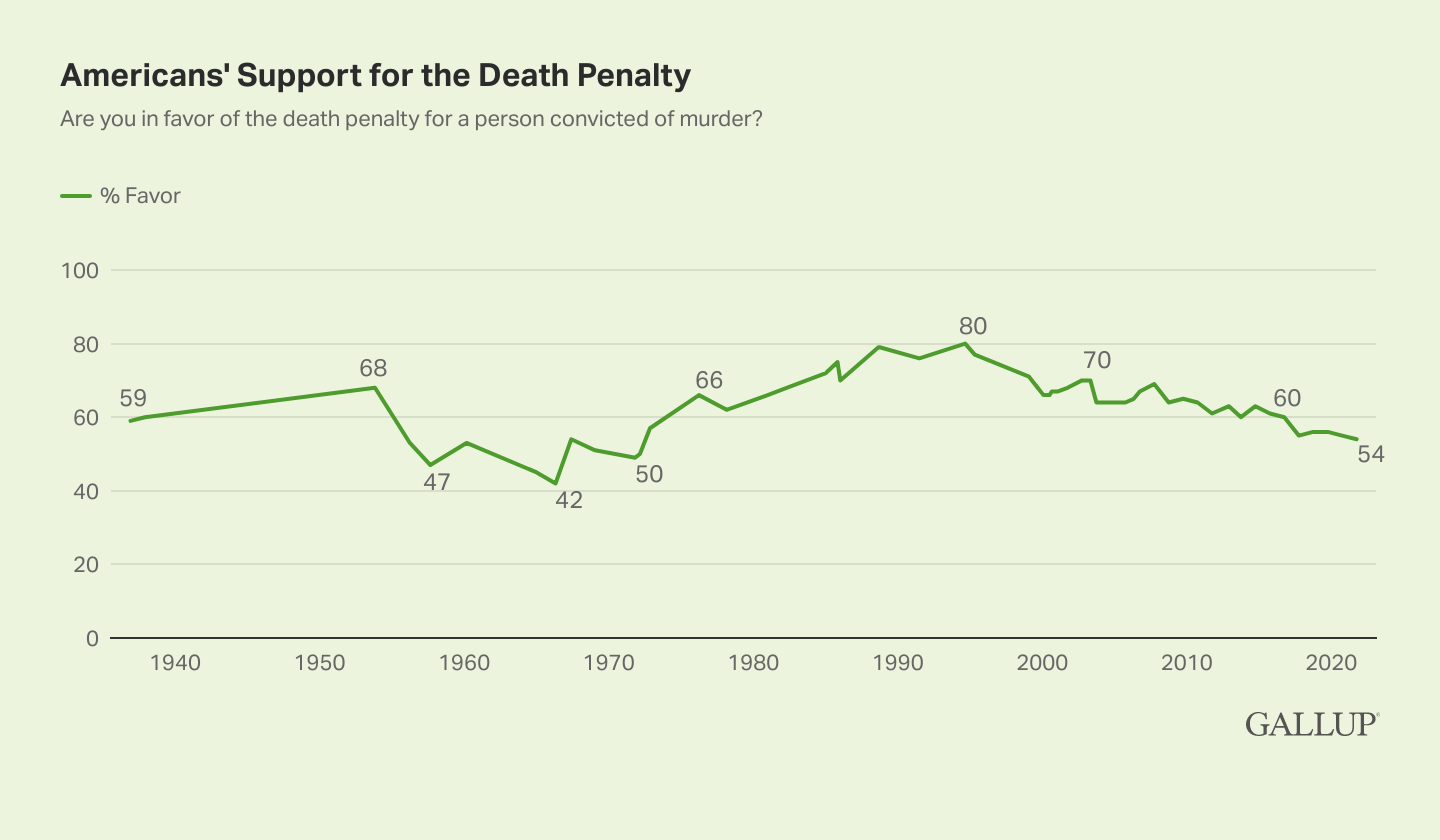WASHINGTON, D.C. -- Americans' opinions about the death penalty have been relatively stable in recent years after a decline in 2017. The current 54% of U.S. adults who say they favor the death penalty for convicted murderers is essentially unchanged from readings over the past four years and remains lower than any other measurement since March 1972 (50%).

Line graph. Trend in Americans' support for the death penalty. Fifty-four percent of Americans say they are in favor of the death penalty for a person convicted of murder. The last time support was lower was 50% in 1972.
The latest results are based on Gallup's annual Crime survey, conducted Oct. 1-19. Gallup first asked about the death penalty using this question wording in 1936, updating it periodically since then -- including annually since 1999.
A different death penalty question Gallup has asked occasionally, though not in the latest poll, finds lower support for the death penalty when life imprisonment with no possibility of parole is offered as an explicit alternative. That question also shows declining support for the death penalty compared with the 1980s, 1990s and early 2000s.
History of Americans' Support for Capital Punishment
When Gallup first asked about the death penalty in 1936, 59% said they were in favor of it. Majorities have consistently favored it, apart from several readings taken between 1957 and 1971, including a low of 42% in 1966. These measures came as legal experts debated the constitutional basis for the death penalty, and the U.S. Supreme Court ruled on a series of challenges over how it was being applied. The court invalidated all existing state death penalty laws in its 1972 Furman v. Georgia ruling. However, that judgment left open the possibility that laws written to address the high court's concerns about arbitrary sentencing in death penalty cases could be constitutional. In 1976, the court ruled that new death penalty laws in several states were permissible under the Constitution.
From that point, support for the death penalty increased, peaking at 80% in 1994, when crime was the issue Americans named most often as the most important problem facing the country. In recent decades, there has been renewed concern about the administration of the death penalty as new evidence has exonerated some death-row inmates and led to some states issuing a moratorium on executions or abolishing the death penalty. These recent developments are likely a factor in declining support for the death penalty since its 1994 peak.
Death Penalty Attitudes Shaped by Politics
Death penalty attitudes vary most by political party and ideological self-identification. Seventy-seven percent of Republicans, 55% of independents and 34% of Democrats are in favor of the death penalty. Also, 70% of those who describe their political views as conservative say they support the death penalty, compared with 57% of moderates and 28% of liberals.
In addition to the political differences, the poll finds significant differences by age, with 41% of young adults aged 18 to 34 in favor of it, compared with 59% of adults aged 35 and older.
To stay up to date with the latest Gallup News insights and updates, follow us on Twitter.
Learn more about how the Gallup Poll Social Series works.



